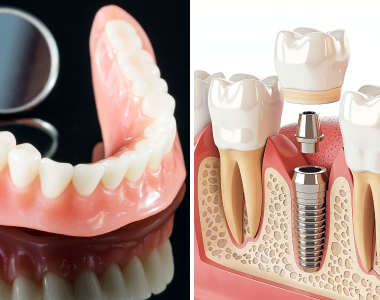Oral Piercings
Body piercing is a popular form of self-expression. Oral piercings or tongue splitting may look cool, but they can be dangerous to your health. That’s because your mouth contains millions of bacteria, and infection and swelling often occur with mouth piercings. For instance, your mouth and tongue could swell so much that you close off your airway or you could choke if part of the jewelry breaks off in your mouth. In some cases, you could crack a tooth if you bite down too hard on the piercing, and repeated clicking of the jewelry against teeth can also cause damage. Oral piercing could also lead to more serious infections, like hepatitis or endocarditis.
If you pierce your tongue, lips, cheeks, or uvula (the tiny tissue that hangs at the back of the throat,) it can interfere with speech, chewing, or swallowing. It may also cause:
- Infection, pain, and swelling. Your mouth is a moist environment, home to huge amounts of breeding bacteria, and an ideal place for infection. An infection can quickly become life-threatening if not treated promptly. It’s also possible for a piercing to cause your tongue to swell, potentially blocking your airway.
- Damage to gums, teeth, and fillings. A common habit of biting or playing with the piercing can injure your gums and lead to cracked, scratched, or sensitive teeth. Piercings can also damage fillings.
- Hypersensitivity to metals. Allergic reactions at the pierced site are also possible.
- Nerve damage. After a piercing, you may experience a numb tongue that is caused by nerve damage that is usually temporary but can sometimes be permanent. The injured nerve may affect your sense of taste, or how you move your mouth. Damage to your tongue’s blood vessels can cause serious blood loss.
- Excessive drooling. Your tongue piercing can increase saliva production.
- Dental appointment difficulties. The jewelry can get in the way of dental care by blocking X-rays.
If you already have piercings:
- Contact your dentist or physician immediately if you have any signs of infection—swelling, pain, fever, chills, shaking, or a red-streaked appearance around the site of the piercing.
- Keep the piercing site clean and free of any matter that may collect on the jewelry by using a mouth rinse after every meal.
- Try to avoid clicking the jewelry against teeth and avoid stress on the piercing. Be gentle and aware of the jewelry’s movement when talking and chewing.
- Check the tightness of your jewelry periodically (with clean hands). This can help prevent you from swallowing or choking if the jewelry becomes dislodged.
- When taking part in sports, remove the jewelry and protect your mouth with a mouthguard.
- See your dentist regularly, and remember to brush twice a day and floss daily.
Of course, the best option is to consider removing mouth jewelry before it causes a problem. Don’t pierce on a whim. The piercing will be an added responsibility to your life, requiring constant attention and upkeep. Talk to your dentist for more information.
Oral Piercing Safety
If you’ve decided to get an oral piercing, make sure you’re up to date on vaccines for hepatitis B and tetanus.
Pick a piercing shop that appears clean and well-run. Look for a piercer who has a license, which means they were specially trained. The piercer should wash their hands with germ-killing soap, wear fresh disposable gloves, and use sterilized tools or ones that are thrown away after one use.
Oral Piercing Care
Once you leave the shop, you’ll need to make sure your piercing heals and doesn’t get infected. Healing usually takes 3 to 4 weeks. During that time, you should:
- Rinse your tongue or lip piercing after every meal or snack and before bed. Use warm salt water or an antibacterial, alcohol-free mouthwash.
- Not share cups, plates, forks, knives, or spoons
- Eat small bites of healthy food.
- Not eat spicy, salty, or acidic foods and drinks
- Not have hot drinks, like coffee, tea, or hot chocolate
- Be gentle. Talk and chew carefully, and try not to click your jewelry against your teeth.
- Check every once in a while to make sure your jewelry is still tight to prevent swallowing or choking.
- Take out your jewelry while you play sports, and wear a mouthguard.
While the piercing heals, you should be able to remove the jewelry for short periods without the hole closing. If you get a tongue piercing, the piercer will start with a larger “barbell” to give your tongue room to heal as it swells. After the swelling goes down, dentists recommend that you replace the large barbell with a smaller one that’s less likely to bother your teeth.
After your tongue has healed, take the jewelry out every night and brush it the way you brush your teeth. You might want to take it out before you go to sleep or do anything active.
 Review Us
Review Us
 Review Us
Review Us


